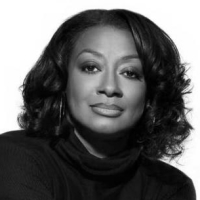Actress Kerry Washington doesn’t often get the chance to play the damsel in distress in her current role on TV. As Olivia Pope on the ABC show Scandal, Washington is a no-nonsense D.C. powerhouse who’s never met a problem she couldn’t fix.

But Washington and her perfectly placed cheekbones do a complete 180-degree this week in the new Quentin Tarantino film, Django Unchained.
As Broomhilda, Washington plays a slave who’s been sold away from her husband, Django (Jamie Foxx), and the plantation where they lived together. Samuel L. Jackson and Leonardo DiCaprio also star in the film.
The film follows Django as he fights not only against the evils of slavery but also to reunite with his lost love. While Tarantino’s unique take on one slave’s ability to overtake his captors and live as a free man has garnered criticism for its unlikely premise, Washington says it was simply the love story that won her over.
“How often do you see black women rescued by the man they love on screen?” asks Washington. “I’m a womanist and that’s real but there is a beauty in knowing that the man you love will do anything to find you and will do it at any cost. We all want to be that princess and know how that feels and want to believe it’s possible for anyone. Black women deserve to see that and believe it too.”
Washington did something she rarely does when Tarantino called to say she’d won the coveted role: she cried. Nearly every black actress in Hollywood auditioned for the part.
“I’ve never done that before after getting a role,” laughs Washington. “I’m not sure why but I knew this role was something special. My dad always wanted to see a black superhero. He would talk about never seeing a ‘black Clint Eastwood’ while he was growing up. I thought a lot about him when I read the script and knew he’d love seeing Django ride and save the day.”
Still, the excitement of making a rarely seen love story or her father’s glee at watching a black superhero wasn’t nearly enough to get Washington through a film that revisits one of the darkest period in America’s history. In Django, Tarantino does little to spare his audience images of the severe brutality and violence used on both male and females slaves by plantation owners. Some of the beating and whipping scenes were so difficult to shoot for Washington that she asked her agent, parents, and even her therapist to fly in during the filming to help her get through the emotional strain.
“I needed all their support for this film because it was so mentally hard in many ways,” remembers Washington. “It’s so unthinkable that my ancestors endured all the torture and pain. I saw things in the script and thought this never happened. But then I talked to Quentin and he showed us the history books that illustrated the masks and other items used to inflict torture and violence on the slaves. It really blew my mind and made me appreciate even more what my ancestors made it through. I barely made it through pretending.”
Jamie Foxx also proved invaluable to Washington during the two-month shoot. The two relied on each other for support throughout filming, and particularly for the most physically demeaning scenes. (The pair had already worked together on the film Ray.)
“We all leaned on each other during the filming, which we all really needed to do,” said Washington. “During breaks from filming the dinner scene, which is really harsh, Leo [DiCaprio, who plays her owner in the film] kept asking me if I was OK. He was so worried about what that scene was doing to me,” Washington recalls. “Jamie and I would get on the phone at 4 a.m. and talk about shooting for the next day and wondering how our people ever survived this. We’d just talk it all through. You have no idea how grateful I am to Jamie for talking to me in the middle of the night.”
Thankfully Washington had a very pleasant alternative to Broomhilda in her day job. Scandal is the first network series to showcase an African-American female in the lead role since the ’70s—and Washington’s on-point portrayal of a D.C. lawyer and top-notch crisis consultant continues to draw in loyal television followers and win rave reviews.
“It felt good knowing that I was going from portraying a woman with no power and who is owned to a woman who owns her own company and has tremendous power,” says Washington. “That was the empowering part for me—to know that the past has changed a great deal and that I can show both worlds in film and TV.”






